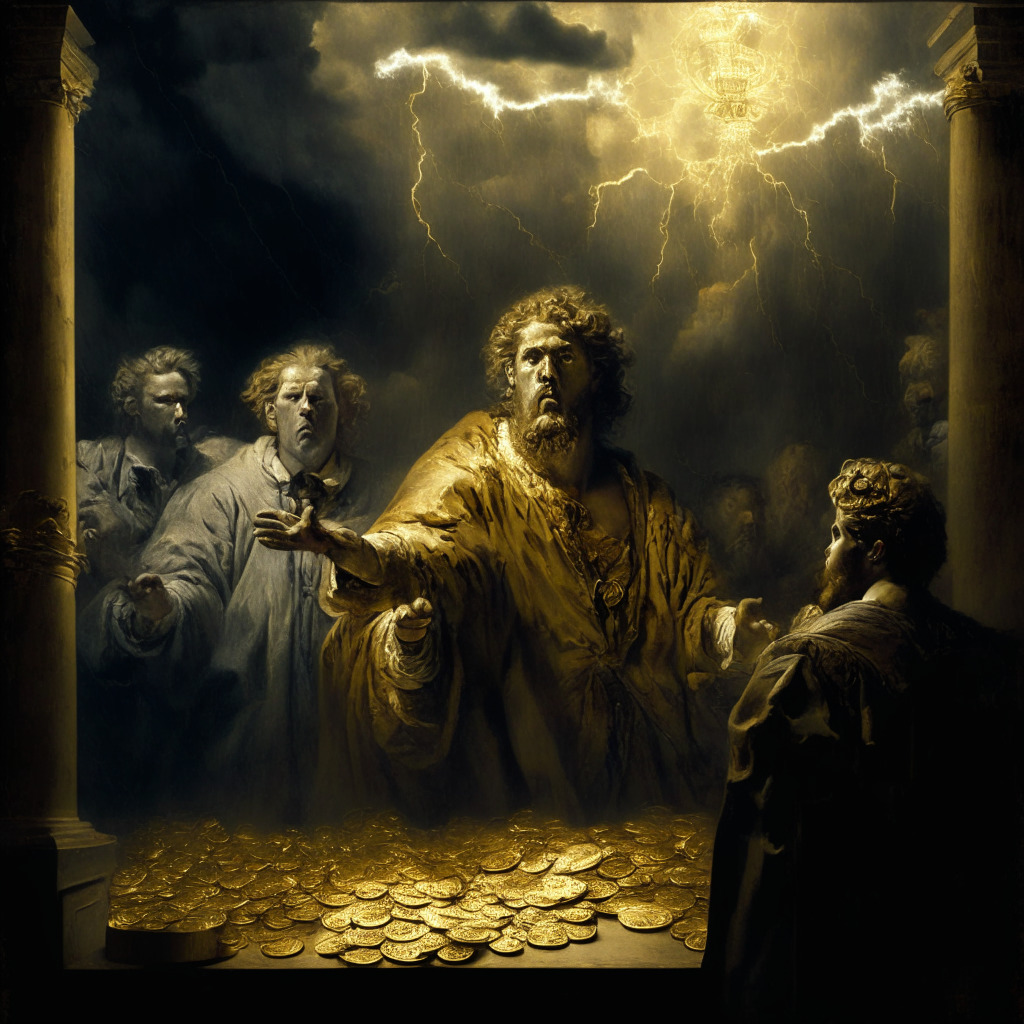A pair of firms operating under the Maker ecosystem has agreed to settle for $1.16 million with investors who sought compensation for financial losses suffered after the “Black Thursday” COVID crash in March 2020. The settlement provides a sense of closure to a class-action lawsuit filed by plaintiff Peter Johnson on behalf of numerous investors, who claimed the Maker Foundation and related entities intentionally misrepresented the risks of collateralized debt positions (CDPs) on the platform, resulting in losses totaling $8.3 million.
Maker’s CDPs, or vaults, allow users to take out over-collateralized DAI loans using crypto such as ether (ETH), but those assets can be liquidated if the value of their collateral slips below a certain threshold. According to Johnson, he and other investors experienced such losses when the value of ETH plummeted by up to 45% on March 12, 2020, dropping from $200 to $110.
MakerDAO’s native token MKR also experienced a significant decline, sinking about 60% at the same time, while the total crypto market lost nearly one-third of its value. Additionally, MakerDAO’s dollar-pegged stablecoin DAI allegedly jumped up to $1.06 on some exchanges during the chaotic period.
A recently released court filing reveals that both parties have now reached a settlement agreement, despite the Maker Foundation denying any wrongdoing or legal violations. While the exact details of the settlement are still subject to court approval, the million-dollar payment is expected to resolve the matter.
Initially, the defendants in the case were the Maker Ecosystem Growth Foundation, the Dai Foundation, and Maker Ecosystem Growth Holdings. In February this year, Judge Maxine Chesney of the US District Court in California granted the Maker firms’ motion to dismiss the lawsuit, giving the plaintiff about a month to amend the complaint. Johnson then filed a third amended class action, now only against Maker Ecosystem Growth Holdings, known as Metronym.
On April 20, both parties and their respective lawyers participated in a mediation session where an agreement was reached the same day. Following the session, they signed a term sheet to put their agreement in writing. The Maker firm agreed to enter the deal “solely to eliminate the uncertainty, burden, and expense of further litigation, and to put the released claims to rest, finally and forever,” according to Johnson’s counsel.
As the crypto space continues to evolve, cases like this reflect the significance of regulatory oversight, aiming to strike the right balance between fostering innovation and protecting investors. While the Maker settlement may be perceived as a victory for some, it also raises questions about the need for tighter regulations and increased transparency surrounding digital asset platforms. Time will tell if regulatory bodies will step in further to ensure investors’ protection in this rapidly changing landscape.
Source: Blockworks




